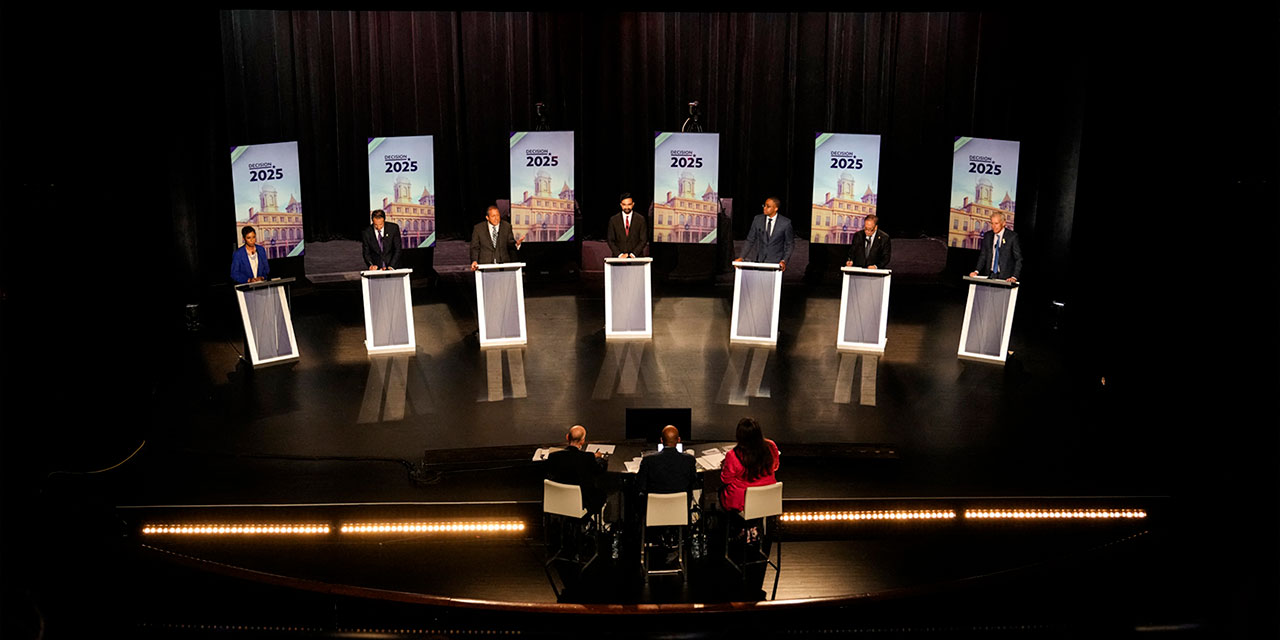
Over the past six months, I have sat across from nearly every serious Democratic candidate for New York City mayor. As part of the New York Editorial Board, a group of veteran journalists (which also includes City Journal contributing editor Nicole Gelinas), I helped conduct long-form, off-camera interviews. No handlers. No applause lines. Just questions: about budgets, housing, protests, immigration, public safety, and the day-to-day challenges of managing America’s largest city.
Conservatives may find little to cheer in this field (though Whitney Tilson comes closest). With Eric Adams floundering and Curtis Sliwa unlikely to improve on his 2021 showing, it’s unclear whether the general election will feature a serious contender on the right.
Finally, a reason to check your email.
Sign up for our free newsletter today.
The candidates who participated in the interviews gave us a revealing look at how they think and how they would govern. A few stood out—not always for the reasons one might expect. And one, frontrunner Andrew Cuomo, didn’t show up at all.
State Senator Zellnor Myrie spoke clearly about the city’s challenges and the need for trust, good governance, and results. He backed big goals—like building a million new homes—while staying grounded in the process. Myrie is progressive but pragmatic, with a solid grasp of how city and state government intersect. He hasn’t broken through politically, but he is someone to watch going forward.
City Comptroller Brad Lander is the technocrat in the race. His grasp of budgeting, procurement, and capital planning is impressive, and his proposals on NYPD overtime and agency savings are pragmatic and detailed. At times, his language veers toward the bureaucratic, though he’s adjusted in recent months. His platform is sober, structurally sound, and executable. In a race often defined by sweeping rhetoric and movement politics, Lander may be the only candidate steadily assembling a serious, functional governing coalition.
State Senator Jessica Ramos offered one of the most affecting interviews, framing her progressive priorities in terms of tangible benefits to struggling families—like raising the minimum wage and securing the Excluded Workers Fund. She spoke candidly about Cuomo’s record, sharply criticizing him for the closure of mental health institutions and the numerous scandals that she hoped New Yorkers wouldn’t forget. But her post-interview endorsement of him raised real questions: Did she mean what she said in the room?
State Assemblyman Zohran Mamdani, the field’s furthest-left candidate, brought ideological focus. His proposals—free transit, housing as a right, universal public goods—resonate with younger, frustrated voters. But when pressed on cost or implementation, he defaulted to values. His recent ranked-choice alliance with Lander underscored the challenge facing New York’s progressives: Mamdani inspires, Lander executes, but neither has built a governing majority.
City Council Speaker Adrienne Adams was calm and competent. She spoke fluently about her efforts to protect city services but didn’t say what she would challenge or change. Competence is necessary—but urgency is, too.
Former comptroller Scott Stringer leaned on his fiscal record. His critiques of debt service and oversight failures were sound. But his pitch felt backward-looking: more about restoring norms than shaping the future.
Whitney Tilson, a hedge fund manager and school-reform advocate, brought a private-sector diagnosis of public dysfunction. He wants to run the city like a high-performing corporation. His calls for metrics, accountability, and streamlined services echoed familiar managerial themes. But he spoke more about firing underperformers than building public trust. His platform lacked a serious plan for working with unions, respecting legal constraints, or balancing efficiency with equity. New York isn’t a startup, and it can’t be restructured by decree.
Former governor Andrew Cuomo did not sit for an interview. He entered the race as the frontrunner and remains so, relying on name recognition and past executive experience. Voters remember his pandemic briefings and infrastructure upgrades. But he’s running an incumbent’s campaign without the scrutiny—declining to say what he’s learned or how he would lead differently.
Taken together, these interviews clarified the stakes. New York doesn’t need branding; it needs execution. A mayor must pass a budget, manage labor contracts, make trade-offs, and restore public trust—not through messaging, but through action.
Myrie is the most grounded, and perhaps the most earnest, but he’s struggled to build visibility or momentum. Mamdani has the movement, but not the operational plan. Cuomo has the résumé but refuses basic scrutiny. In between, Lander has quietly emerged as the pragmatic progressive.
Still, governing skill doesn’t always win elections. Voters are emotional, especially in a polarized climate. Cuomo evokes nostalgia and authority; Mamdani offers moral clarity and urgency. Lander, despite his qualifications, doesn’t command the same emotional resonance. He remains little known outside civic and policy circles and lacks the spark that drives turnout.
Some candidates are treating City Hall as a platform for national messaging. But cities aren’t governed in slogans. They’re managed in procurement meetings, budget negotiations, and late-night calls to overworked commissioners.
Voters may ultimately choose the candidate who moves them emotionally. But the one who will move the city forward is the one who can govern.
Photo by VINCENT ALBAN/POOL/AFP via Getty Images
City Journal is a publication of the Manhattan Institute for Policy Research (MI), a leading free-market think tank. Are you interested in supporting the magazine? As a 501(c)(3) nonprofit, donations in support of MI and City Journal are fully tax-deductible as provided by law (EIN #13-2912529).
Source link


















